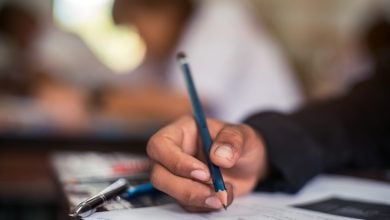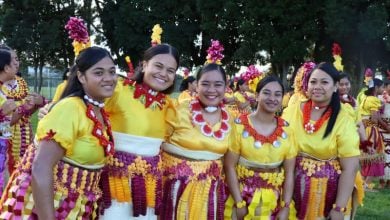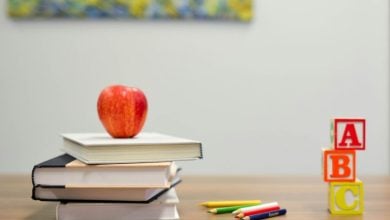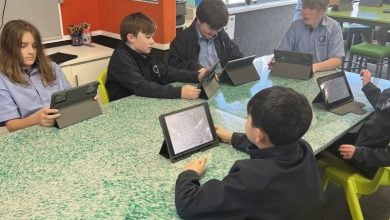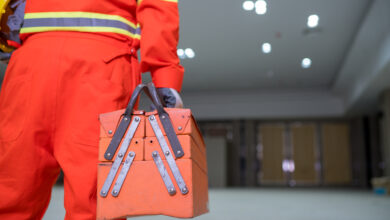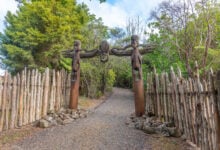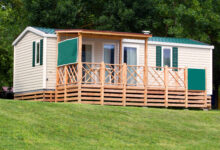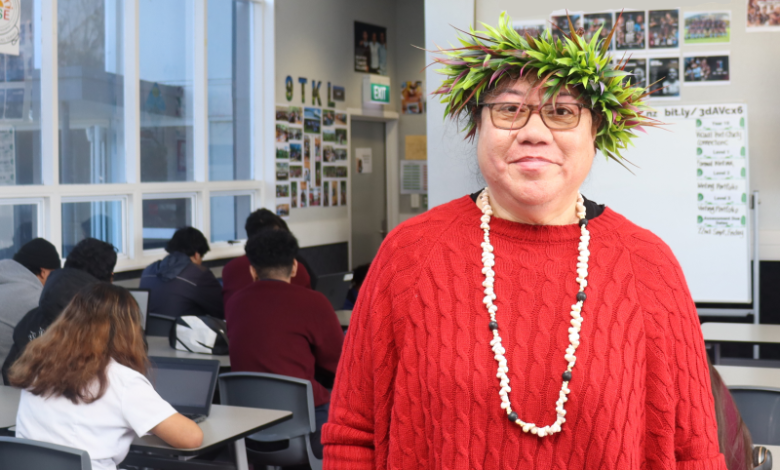
In June this year, I did an interview together with Principal Kiri Turketo for 1News.
We were speaking on some of the measures our respective schools had implemented to provide support for our young people and our communities both here at Tāmaki College, and at Sir Edmund Hillary Collegiate.
Read the Term 4 edition of School News HERE
Since then, we’ve gotten many requests for interviews. I would like to share our story with the wider community in Aotearoa, however, be warned, we don’t have any silver bullets except doing what we need to do: finding local solutions.
I want to be careful and note that our methods aren’t prescriptive solutions for people in other communities, who may have different needs. But we are about finding solutions for our young people and our community’s needs here in Glen Innes, Auckland.
I also don’t want readers, or the community to feel that I’m portraying these whānau as deficient. At our school, we are very fortunate to have a high degree of trust between ourselves and the community, which we have worked very hard to build and maintain. This trust is a privilege which allows us to work together with the community to find ways of creating the best outcomes for our young people. After all, that’s why we’re here both as educators and as members of the wider community.
Trust between the school and the community is vital when it comes to responding to young people’s needs – because we can’t help rangatahi with the issues they face if they don’t trust us enough to reach out. These young people tell us about the things that are happening in their lives. So, we handle these matters sensitively as a school, because we appreciate the trust they have in us.
Our families often need help whether it’s with their power bill, food access, housing advice etc, and because we are in a very safe relational space, they let us know that they need help. That takes a lot of courage when there is fakamā (shame) and stigma around asking for assistance. When whānau come to us with these issues, we offer immediate solutions but also offer opportunities for financial literacy workshops. This ensures that the help we give them is sustainable. These matters impact on equity and access to learning – if families are at risk of having their power disconnected, learning is disrupted. That means that if we as a school want to help provide our young people with equity and access, we cannot just sit in our teaching and learning square.
As a school, the Ministry of Education provides teaching and learning resourcing. But after 32 years in the Tāmaki College community I know that meeting the learning needs of our community needs a wider scope. Ideally, solutioning will be more efficient and effective through a collaboration of the Te Tahuhu o te Matauranga (Ministry of Education), MSD and Te Whatu Ora. But that’s not happening tomorrow, so we must try our best around this.
I’ve been at this school and in this community for 32 years. In that time, I have seen many success stories in the academic and sporting fields and when I think about what has changed and what has not, I’m mostly struck by what has not changed. Social issues like drugs and alcohol, domestic violence and poverty have not changed in my 32 years in the community. And after all this time, we are now teaching the children of students that have been through this school decades ago – these issues are intergenerational.
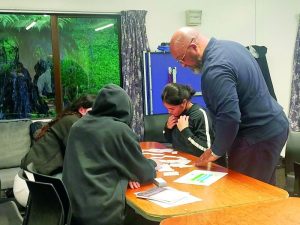
At the same time, young people’s aspirations have not changed either – children will always aspire to do well. In my time, I’ve seen children who have risen above these social issues. But that kind of resilience is not and should not be the norm. As a school, our business is teaching and learning. There are many success stories and many of our students have become (to name a few) engineers, lawyers, builders, mechanics, IT engineers, nurses and teachers (we have seven on our staff!).
We cannot do this on our own. We formed a partnership with the Pacific Futures Limited, to resource our students by way of removing barriers to their learning. This partnership then extended to whanau, catalysed by COVID, to support and enrich with families with opportunities that would have otherwise remained dormant. This partnership opened the door to our realities and thus the establishment of the RISE Group Trust, because we had to find the resources to enable us to address the intergenerational barriers plaguing some of our families.
In 2019, we founded the Tereora Academy under the auspices of the Tamaki College Education Trust. In 2020, we began Project RISE with the RISE Group Trust, which is comprised of myself and senior members of the school board. We were lucky to have Ina Michael on secondment (from Tamaki Regeneration Company) as our Executive Director. He has a background in community work, so he was the ideal person to help us develop our vision and seek partnerships and funding to support it.
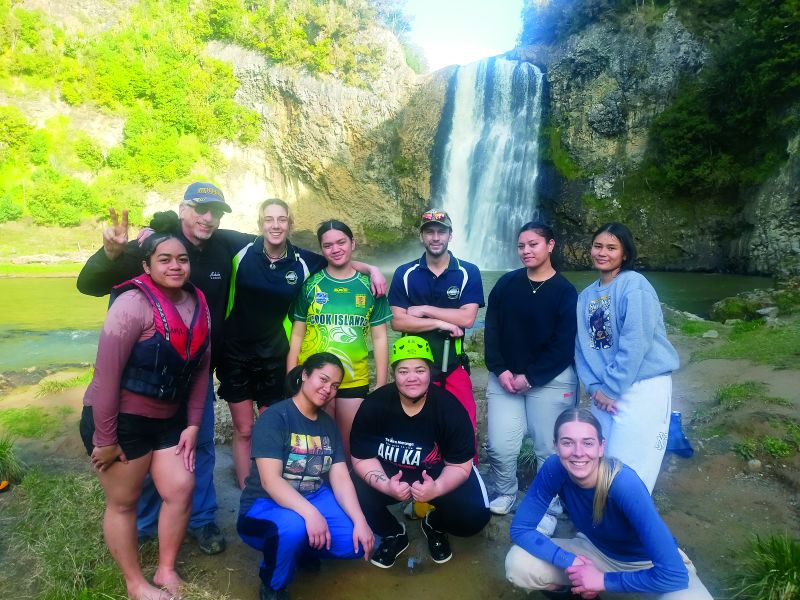
Project RISE is a realisation of dreams that we’ve had for over a decade. At Tāmaki College, we’ve always wanted to be able to support our families with food access, financial literacy healthcare access, literacy and help to build an environment conducive to success at school and in the home. We want to support our community and our young people so that when they arrive at Tāmaki College, they’re learning ready. What I mean by ‘learning ready’ is that these young people have access to food when they need it; that their literacy and numeracy is where it should be; that they’re happy and their wellbeing is the best it can be.
One of the projects we’re doing through RISE is called Soul, Food and Friends. Through the programme, we are trying to create the opportunity for apprenticeships and training for our young people. We have a Trades Academy that teaches catering and hospitality, and we’d like to link that up with this new programme. We have community partners who we connect to students. They provide training opportunities which may in future link up with MIT or another tertiary provider so they’re training on the job and gaining micro-credentials which can be put toward a qualification.
We’re also a part of the Ka Ora, Ka Ako | Healthy School Lunches programme. For that, we decided not to go with an external provider, instead employing students in our catering and hospitality programme to run it out of our school marae Wharekai. It’s not ideal, (it is not an industrial kitchen and it is taking away the Wharekai from our Marae learning area) but we make it work, and while it is not perfect yet we’ve been successful because we are making food that our community wants to eat, which means less waste and we are on the right path to full stomachs and better learners. With Soul, Food and Friends starting up, we’re looking to move our lunch facilities over to the more suitable, industrialised kitchen space that we are renting with that programme.
Project RISE also has a three-year partnership with MSD to support 100 young people disengaged from education, employment and training. This allows us to continue to support the young people in our community who are disengaged for varying reasons and needing help.
We’ve just had our first intake of nine girls, who are completing 40 days wrap around service to get them refocused, work ready or re-entry into education or training. It started with seven days at Kokako Lodge for self-determination and identity, self-efficacy and resilience. This is followed by workshops which are theme based. These themes are Dressed in Confidence (at NORA Swann Fashion Warehouse), focusing on self-care, resilience, work culture. Then Fusion Network (at FUSION NETWORKS) delivering digital literacy and job seeking, and finally Gateway (at Fletchers building) delivering on CV writing, Interviews and Career Goals. Finally, there is a literacy workshop at St Marys Church, Glen Innes and a ‘tidy-up’ session at Te Oro, Glen Innes.
The desired outcome is that each cadet realises their pathway and a way forward through this personalised programme. Again, projects like these are where trust comes in. That first meeting with the girls going through the programme, only two showed up. And the camp was happening in a few days. So, we thought moving forward, we’ll just have to pick them up. That’s what we did, and in the end all nine girls came to camp. That’s the kind of engagement we want with Project RISE and the RISE Group Trust. If we don’t have these community-led interventions, we’re just going to continue having really disengaged young people.
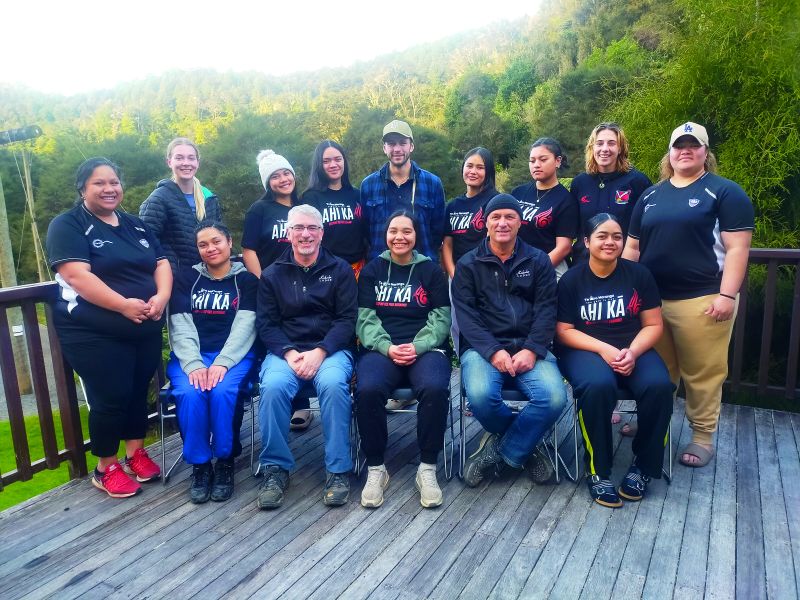
Additionally, we have a youth consultancy group called the WayFYnders. They came up with this name themselves – the captial FY stands for “for youth”. It’s a group of 16- to 25-year-olds, employed by Project RISE, working as problem-solvers for the community. They are currently mentoring students in a local primary school who have attendance challenges. Hopefully this will improve attendance.
All of these community solutions sit alongside what the school itself can do for our young people. Our senior students, for example, are learning from home every Monday. It helps those students who need to work to help their families, and it gives them an opportunity to build their time-management skills. It has provided our Senior students with real life experience of managing their time, their schoolwork and themselves away from the classroom.
The jury is still out with our Hybrid learning model but considering the huge disruption that COVID has been and continues to be, I believe that we should be creating as many opportunities as possible for our young people, even if we have to step outside the square.
Our Health Science pathway in partnership with Pasifika Futures Limited is another example of the school’s effort to collaborate with external partners to give a ‘hand up’ to our students and their families. As a school we are doing our level best to create equity and access for our rangatahi, both inside and outside of the teaching and learning domain. As educators, our job is to figure out how to deliver self-efficacy and self-belief to these young people as well as literacy and numeracy.
We want to ensure our young people can have access to all the things they need to enable them to be successful in whatever they want to do – because they can.


